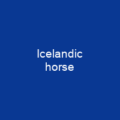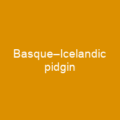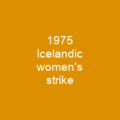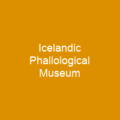Iceland

Iceland is a Nordic island country in the North Atlantic Ocean. It has a population of 356,991 and an area of 103,000 km2. The capital and largest city is Reykjavík. The settlement of Iceland began in 874 AD when the Norwegian chieftain Ingólfr Arnarson became the first permanent settler.
About Iceland in brief
 Iceland is a Nordic island country in the North Atlantic Ocean. It has a population of 356,991 and an area of 103,000 km2. The capital and largest city is Reykjavík. Iceland is warmed by the Gulf Stream and has a temperate climate, despite a high latitude just outside the Arctic Circle. Its high latitude and marine influence keep summers chilly, with most of the archipelago having a polar climate. The settlement of Iceland began in 874 AD when the Norwegian chieftain Ingólfr Arnarson became the first permanent settler on the island. In the following centuries, Norwegians, and to a lesser extent other Scandinavians, emigrated to Iceland, bringing with them thralls of Gaelic origin. The island was governed as an independent commonwealth under the Althing, one of the world’s oldest functioning legislative assemblies. Until the 20th century, Iceland relied largely on subsistence fishing and agriculture. Industrialisation of the fisheries and Marshall Plan aid following World War II brought prosperity, and Iceland became a part of the European Economic Area in 1994. In 2018, it was ranked as the sixth-most developed country in. the world by the United Nations’ Human Development Index, and it ranks first on the Global Peace Index. The country’s cultural heritage includes traditional Icelandic cuisine, Icelandic literature, and medieval sagas. Iceland has the smallest population of any NATO member and is the only one with no standing army with a lightly armed coast guard. The first Norseman to reach Iceland in the 9th century named it Snæland or Snoddeðar because it was snowing.
Iceland is a Nordic island country in the North Atlantic Ocean. It has a population of 356,991 and an area of 103,000 km2. The capital and largest city is Reykjavík. Iceland is warmed by the Gulf Stream and has a temperate climate, despite a high latitude just outside the Arctic Circle. Its high latitude and marine influence keep summers chilly, with most of the archipelago having a polar climate. The settlement of Iceland began in 874 AD when the Norwegian chieftain Ingólfr Arnarson became the first permanent settler on the island. In the following centuries, Norwegians, and to a lesser extent other Scandinavians, emigrated to Iceland, bringing with them thralls of Gaelic origin. The island was governed as an independent commonwealth under the Althing, one of the world’s oldest functioning legislative assemblies. Until the 20th century, Iceland relied largely on subsistence fishing and agriculture. Industrialisation of the fisheries and Marshall Plan aid following World War II brought prosperity, and Iceland became a part of the European Economic Area in 1994. In 2018, it was ranked as the sixth-most developed country in. the world by the United Nations’ Human Development Index, and it ranks first on the Global Peace Index. The country’s cultural heritage includes traditional Icelandic cuisine, Icelandic literature, and medieval sagas. Iceland has the smallest population of any NATO member and is the only one with no standing army with a lightly armed coast guard. The first Norseman to reach Iceland in the 9th century named it Snæland or Snoddeðar because it was snowing.
Following the Swedes’ invasion of the island, the island was then called Garðar’s Island and so named by the Vikings. The current Icelandic language, Icelandic, is descended from Old West Norse and is closely related to Faroese. Iceland ranks high in economic, democratic, social stability, and equality, ranking third in the world in median wealth per adult. It also has a market economy with relatively low taxes, compared to other OECD countries, as well as the highest trade union membership in the World. The nation’s entire banking system systemically failed in October 2008, leading to an economic crisis and the collapse of the country’s three largest banks. The crisis prompted substantial political unrest, the Icesave dispute, and the institution of capital controls. By 2014, the Icelandic economy had made a significant recovery, in large part due to a surge in tourism, due to the rise of the Icelandic tourism industry and the popularity of Iceland’s national sport, the Icelanders’ love of ice-hockey. Iceland is the most sparsely populated country in Europe, with over two-thirds of the population living in the southwest. The interior consists of a plateau characterised by sand and lava fields, mountains, and glaciers, and many glacial rivers flow to the sea through the lowlands. The island republic has been credited with sustaining the world’s oldest and longest-running parliament.
You want to know more about Iceland?
This page is based on the article Iceland published in Wikipedia (as of Dec. 04, 2020) and was automatically summarized using artificial intelligence.












